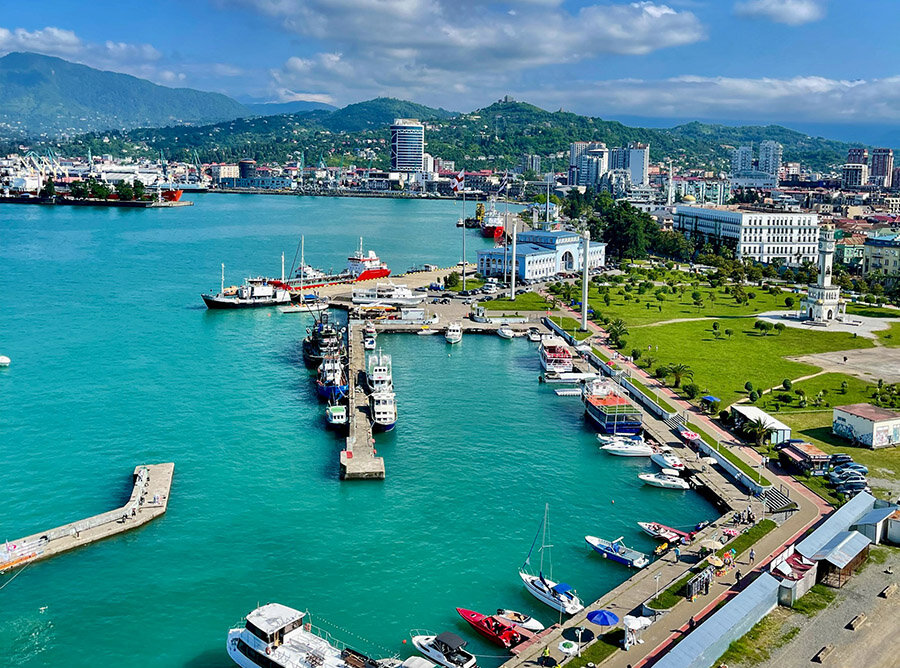Geopolitical Tensions Drive Israeli Capital Into Georgia's Booming Hotel Market

By International Investment Biz | June 2025
As geopolitical tensions flare in the Middle East, Israeli investors are quietly shifting capital across borders — and one surprising beneficiary has emerged: Georgia’s rapidly growing hospitality sector.
The Iran-Israel Escalation Fuels Financial Outflows
In recent months, the intensifying standoff between Israel and Iran, combined with domestic political instability, has driven Israeli business owners, high-net-worth individuals, and institutional investors to seek safer offshore opportunities.
According to data from Israel’s Central Bureau of Statistics, net private capital outflows accelerated sharply in Q1 2025, marking the highest quarterly movement of funds abroad since 2014. Unofficial estimates by several Tel Aviv wealth management firms suggest that between $6-8 billion may have been moved offshore since the start of the year, driven by concerns over regional security risks, potential tax reforms, and continued judicial reforms unsettling domestic markets.
"We are seeing strong demand from clients who want to diversify outside of Israel — not necessarily for political reasons alone, but for financial hedging as well," says Dana Levi, managing partner at Haifa-based Horizon Global Family Office.
Georgia Emerges as a Stable Investment Haven
While much of the capital traditionally flowed into the US, UK, or EU property markets, a growing segment of Israeli investors is turning its attention eastward — towards Georgia, and specifically into hotel and hospitality assets in Tbilisi, Batumi, and the Black Sea coastline.
Georgia’s combination of political stability, business-friendly regulations, low taxes, and rising tourism have made the country one of the fastest-growing hospitality markets in Eastern Europe.
According to Georgia’s National Tourism Administration, the country welcomed 7.2 million visitors in 2024, a 25% year-on-year growth, with preliminary data for early 2025 indicating further acceleration. Hotel occupancy rates in Tbilisi have surged above 75%, while coastal cities like Batumi are witnessing record development pipelines.
"The return profile on Georgian hotel assets is increasingly attractive, especially when compared to compressed yields in Western Europe," says Michael Goldman, Head of Cross-Border Hospitality Investments at the Tel Aviv-based Adler Group.
Record-Breaking Hotel Transactions Boost Market Sentiment
In recent months, several high-profile hotel transactions involving Israeli investors have underscored this trend.
In February 2025, a consortium of Israeli private equity firms completed a $45 million acquisition of a 5-star resort complex in Batumi’s New Boulevard district, marking one of the city’s largest hospitality deals to date.
In April, a Tel Aviv-based hotel developer announced a $60 million joint venture with Georgian partners to develop a luxury mixed-use hotel and residence tower in central Tbilisi, scheduled for 2027 completion.
Smaller boutique hotel projects catering to mid-tier tourism and digital nomad markets are proliferating as well, often backed by Israeli family offices.
Georgia’s government is actively supporting the hotel boom, offering tax incentives for green-certified hotels and fast-tracking permits for international joint ventures. In 2024 alone, hotel investment volumes in Georgia reached a record $400 million — up 40% from pre-pandemic levels — according to Colliers Georgia.
Why Georgia Fits Israel's Investment Psychology
Analysts note that Georgia ticks multiple boxes for risk-averse Israeli investors in the current climate:
Geopolitical neutrality: Georgia remains outside direct military or political conflict zones.
Proximity: Tbilisi is only a two-hour flight from Tel Aviv, offering convenience for investors who seek personal oversight.
Tax incentives: No wealth tax, no inheritance tax, and low capital gains tax rates appeal to Israeli high-net-worth individuals.
Regulatory access: Georgia’s streamlined real estate purchase process allows full foreign ownership.
Tourism growth: Double-digit increases in tourist arrivals post-pandemic fuel long-term hotel demand.
Beyond Hotels: roader Diversification Trends Emerging
While hospitality remains the prime destination for Israeli capital in Georgia, real estate developers are also exploring residential complexes, luxury vacation homes along the Black Sea, and wellness resort projects targeting wealthy Gulf and Asian travelers.
Bank of Georgia’s April 2025 capital inflow report revealed that non-resident deposits from Israeli nationals have grown 57% year-on-year, reflecting both portfolio diversification and deeper financial ties.
"Georgia is no longer just a fringe play for Israelis," says Ilan Becker, Chief Strategist at Tel Aviv-based Nomad Global Wealth. "For many of our clients, it’s now a core allocation within their international property portfolios."
Outlook: The Middle East Drives Demand for Georgia’s Tourism Infrastructure
As the regional landscape remains volatile, Georgia’s tourism sector may continue to benefit from capital displacement. Israeli investors, alongside growing Gulf and Central Asian capital, are positioning themselves early in anticipation of long-term demand for premium hotel capacity.
According to TBC Capital’s May 2025 forecast, Georgia’s hospitality sector may attract an additional $500 million in new hotel investments over the next 18-24 months, with Israeli-led projects expected to remain among the most active foreign players.
In a world of geopolitical uncertainty, Georgia's boutique hotel boom is fast becoming an unlikely refuge for Israeli wealth seeking both growth — and stability.








